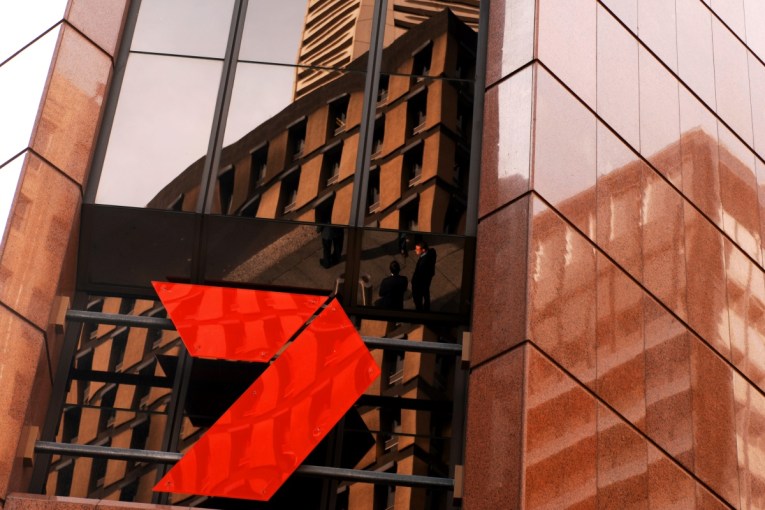Cattle ‘hit with sledgehammers’
Federal Treasurer Joe Hockey says the Government will not overreact to claims Australian cattle have been slaughtered with sledgehammers in Vietnam.
Australia’s live export trade is caught in a fresh controversy, with Animals Australia saying it has “shocking and distressing” footage showing animals having their skulls repeatedly smashed at an abattoir in Vietnam’s north.
The animal rights group is yet to release the vision but lodged a complaint with the Agriculture Department last week.
Speaking in Darwin this morning, Mr Hockey said the live trade export industry would not be completely shut down due to animal cruelty complaints in one region.
“Frankly if there is one country or one place that is actually undertaking an inhumane treatment or terrible treatment of animals, then it is proper to react to that one instance,” he said.
“But you don’t close off the food supply to many countries where they have very low income or don’t have the supply of protein on the basis of a single report alone.
“That was the mistake the previous government made, we are not going to make that mistake. We are going to investigate that thoroughly.”
Animals Australia launched an investigation in Vietnam “after admissions by industry representatives in April that thousands of Australian cattle had been slaughtered outside approved supply chains,” a statement from the animal rights group said.
“The killing of cattle and buffalo through repeated blows to the head with a sledgehammer is the traditional method of slaughter in Vietnam.”
Vietnam has quickly grown to become Australia’s second largest live export market for cattle, with Animals Australia saying 178,000 animals were exported there last year.
Animals Australia said there had been eight complaints over the past two years about the killing of cattle in Vietnam.
Agriculture Department investigating three potential breaches
Agriculture Minister Barnaby Joyce said reports of cattle being killed with sledgehammers in Vietnam, outside of approved abattoir facilities, were first raised months ago by the live export industry itself.
In March, industry notified the Department of Agriculture of several incidents. The department then launched three investigations, which are ongoing.
It is not clear whether the images released by Animals Australia relate to instances already identified by industry.
Mr Joyce said self-reporting by livestock exporters proved the system is working, and the industry was serious about addressing welfare breaches in its export markets.
He also said Animals Australia should reveal when it first became aware of the incidents it reported to the Government.
“I imagine they’ve known about it since March [too]; do they release things for humanitarian effect or for media effect?” Mr Joyce asked.
“We knew about this because the industry itself has reported on it, and we are making sure that our investigations go through the proper process.
“If prosecutions need to take place, they will.”
RSPCA calls for live cattle trade with Vietnam to be suspended
The RSPCA said there had been problems in Vietnam for some time.
This is a serious problem, we should not be allowing more cattle to be exported until these issues have been sorted out.
Bidda Jones, RSPCA chief scientist
“The Government is doing nothing to stop more cattle going into that market,” RSPCA chief scientist Bidda Jones said.
Australian animals are traced to their final slaughter destination under the Exporter Supply Chain Assurance Scheme.
The RSPCA said the scheme was not working for Vietnam and exports needed to stop until it was working.
“This is a serious problem, we should not be allowing more cattle to be exported until these issues have been sorted out,” Dr Jones said.
“An assurance scheme that provides no assurance is not effective and not working.”
But the Minister’s statement said the Federal Government remained “totally committed” to the live export trade, and when problems arise the Government does not “shut down an entire industry”.
New rules will prevent use of sledgehammers: industry
Australian Livestock Exporters’ Council (ALEC) said it had identified the issue of Australian cattle leaving approved supply chains in Vietnam and ending up in “very basic slaughterhouses”.
The industry body said it was rolling out six tough new measures, including CCTV in Vietnamese feedlots and abattoirs.
“We have to stamp out any idea that it’s easy to remove livestock from our supply chains, we don’t stand for it,” ALEC chief executive Alison Penfold said.
“These new conditions that exporters put in place six weeks ago make it very clear to anyone who breaches our conditions they will not receive Australian livestock,” she said.








